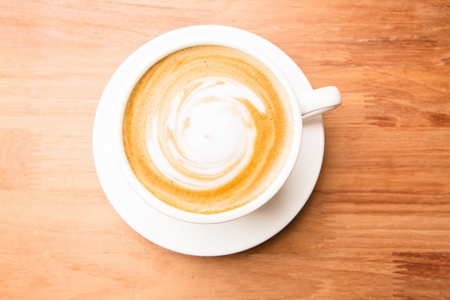1. Understanding the British Brew: Tea, Coffee, and Caffeine Culture
To truly understand caffeine consumption in the UK, one must first immerse themselves in the nation’s storied relationship with tea and coffee. From the elegant drawing rooms of the Victorian era to today’s bustling high streets lined with coffee shops, hot brews have long been woven into the fabric of British life. Tea remains a quintessential part of daily rituals—be it a comforting “cuppa” at home, or an indispensable break in the workplace. This national obsession is more than just about taste; it is a cultural touchstone, signifying hospitality, routine, and even solace during trying times.
While tea has historically reigned supreme, the past few decades have witnessed a robust rise in coffee culture. Artisan cafés now jostle for space alongside traditional tearooms, and flat whites are ordered as readily as builder’s tea. For many Brits, caffeine—whether sipped from delicate porcelain or a takeaway cup—is both a social connector and a productivity booster. It shapes mornings, fuels creative sessions, and marks moments of pause throughout busy days.
The UK’s caffeine culture is thus a fascinating blend of heritage and modernity, reflecting changing tastes while honouring time-honoured traditions. As we journey deeper into understanding how Britons balance their love for hot drinks with wellbeing and productivity, we begin to see how these daily rituals are not merely habits but expressions of identity and community.
2. How Much is Too Much? Caffeine Guidelines and Recommendations
In the UK, caffeine fuels much of our daily rhythm, from the morning brew to the late-afternoon pick-me-up. But how much is actually considered safe? Let’s dig into NHS guidelines, expert medical advice, and uniquely British habits to help you find a healthy balance between productivity and wellbeing.
NHS Recommendations: The Official Line
The NHS recommends that healthy adults should consume no more than 400mg of caffeine per day—roughly equivalent to four cups of brewed coffee or about eight cups of tea. For pregnant women, this drops to 200mg per day. Exceeding these limits can lead to restlessness, insomnia, headaches, and increased heart rate.
Daily Caffeine Limit Table
| Beverage | Average Caffeine Content (mg) | Number of Servings for 400mg Limit |
|---|---|---|
| Tea (per cup) | 50 | 8 |
| Coffee (per cup) | 100 | 4 |
| Energy Drink (250ml can) | 80 | 5 |
| Cola (330ml can) | 32 | 12 |
The British Way: How Local Habits Stack Up Globally
The British are famed for their love affair with tea, yet coffee culture has flourished in recent years. On average, Brits drink two cups of tea and one cup of coffee per day—comfortably within recommended limits. Compared to other countries like the US or Scandinavia, where coffee consumption can be significantly higher, UK habits are relatively moderate. However, the rise in popularity of energy drinks among younger demographics is prompting renewed conversations about healthy intake.
Medical Advice: Listen to Your Body
While guidelines provide a useful benchmark, tolerance varies from person to person. Some may feel jittery after just one strong coffee; others can sip espresso late into the evening with no ill effects. If you notice trouble sleeping, increased anxiety, or palpitations, it may be time to scale back your intake—regardless of official numbers.
![]()
3. High Street Choices: Navigating Cafés, Chains, and Indie Coffee Shops
Exploring the UK’s caffeinated scene is an adventure in itself, blending tradition with modern flair. On every bustling high street, you’ll find a tapestry of options catering to every taste and tempo. Classic British tearooms offer a genteel experience—think delicate porcelain cups, scones with clotted cream, and a distinctly unhurried atmosphere. Here, the caffeine fix is more about ritual than rush, making it ideal for those seeking balance and calm.
For the on-the-go crowd, familiar chains like Costa, Pret, and Starbucks dot the landscape from Aberdeen to Plymouth. These giants deliver consistency and convenience—whether you’re after a quick flat white before your morning commute or a reliable space to tap away at your laptop. The menus are extensive, covering everything from robust espressos to dairy-free lattes, ensuring there’s something for everyone needing a pick-me-up between meetings.
Yet, it’s the indie coffee shops that truly set the UK apart for caffeine connoisseurs and lifestyle enthusiasts alike. From Shoreditch’s exposed-brick hangouts to Manchester’s Scandi-inspired cafés, these spots prioritise craftsmanship and local provenance. Expect single-origin beans, creative brewing methods, and interiors that invite lingering conversations or quiet contemplation. Many indies focus on ethical sourcing and sustainability—a reflection of the UK’s growing appetite for mindful consumption.
Ultimately, each venue brings its own flavour to Britain’s coffee culture: tearooms for tradition and tranquillity; chains for accessibility and efficiency; independents for quality and character. This mosaic of choices means there’s always an option to suit your mood, schedule, or wellness goals—whether you’re seeking productivity fuel or a mindful pause amidst city bustle.
4. Caffeine, Productivity, and the British Workday
In the UK, caffeine consumption is deeply woven into the fabric of workplace culture, acting as both a social glue and a productivity tool. From early morning commutes to the afternoon lull, Brits turn to tea and coffee not only for a pick-me-up but also to punctuate their workday with moments of connection and routine.
The Ritual of the Office Tea Round
No guide to British workplace caffeine habits would be complete without mention of the legendary tea round. This cherished tradition involves one person volunteering to brew and deliver hot drinks to colleagues, fostering camaraderie and offering a brief respite from the grind. The etiquette here is paramount: knowing everyone’s preferred brew strength, milk-to-tea ratio, and sugar count is seen as a mark of true collegial respect. Missteps—such as forgetting someone’s order or serving a weak cuppa—are remembered with good-natured ribbing.
Coffee Breaks: Moments of Recharge
Coffee breaks serve as informal gatherings where ideas are exchanged and relationships built. Unlike some cultures where breaks are solitary affairs, in Britain these pauses are communal, often taking place in shared kitchens or break rooms. They provide not just an energy boost but also an opportunity for creative cross-pollination between departments or teams. The following table illustrates the typical timing and purpose of caffeinated breaks during a standard British workday:
| Time | Beverage | Purpose |
|---|---|---|
| 08:30-09:00 | Tea/Coffee | Start-of-day ritual; team catch-up |
| 11:00-11:15 | Tea (often stronger) | Mid-morning energy boost; informal discussion |
| 13:00-14:00 | Coffee/Espresso | Post-lunch alertness; productivity reset |
| 15:30-16:00 | Tea (sometimes herbal) | Afternoon wind-down; social bonding |
The Etiquette That Binds Colleagues
Caffeine-fuelled rituals come with unwritten rules that reinforce workplace harmony. Participation in tea rounds signals inclusivity; declining too often may unintentionally mark one as aloof. It’s considered polite to offer a round if you’re making a drink for yourself, particularly in smaller teams. Additionally, bringing in speciality teas or artisanal coffees is often seen as an act of generosity—an easy way to earn goodwill.
Caffeine, Collaboration, and Balance
The British approach to caffeine at work strikes a balance between boosting alertness and nurturing relationships. While productivity matters, so too does wellbeing—a fact reflected in the unhurried pace of tea breaks and the gentle humour that accompanies them. By blending efficiency with sociability, UK workplaces create environments where both individuals and teams can thrive.
5. Mindful Consumption: Balancing Wellbeing and Ritual
The British relationship with caffeine—whether through a morning flat white, a classic builder’s brew, or the afternoon ritual of tea and biscuits—is steeped in tradition as much as daily necessity. Yet, as we seek to balance productivity with wellbeing, it’s worth considering not just what we drink but how and why we drink it. Here are some practical tips for mindful caffeine consumption tailored to the UK lifestyle.
Honour the Ritual, Not Just the Rush
Embrace the cultural rituals around tea and coffee as opportunities for pause rather than simply fuel for productivity. Savour your mid-morning cuppa in a favourite mug, take time out for conversation during an afternoon break, and allow these moments to anchor your day—helping you to be present and connected, not just caffeinated.
Know Your Limits
The NHS recommends keeping caffeine intake under 400mg per day (around four cups of brewed coffee or eight cups of black tea). Listen to your body: if you’re feeling jittery, anxious, or struggling to sleep, consider cutting back or switching up your routine. Opting for decaf after lunch or herbal teas in the evening can help maintain balance.
Pair with Nourishment
Caffeine on an empty stomach can unsettle even the hardiest Brit. Pair your morning coffee with a proper breakfast—think porridge or toast—and enjoy tea alongside a wholesome snack to avoid energy crashes later on.
Explore Local Alternatives
The UK is home to a growing range of artisan decafs, herbal infusions like peppermint or chamomile, and even trendy matcha lattes that offer gentle lifts without the same caffeine hit. Sampling these alternatives in local cafés can become its own pleasurable ritual—one that supports both palate and wellbeing.
Set Boundaries for Productivity
While many of us reach for another cup during long afternoons at work or study sessions at university libraries, set yourself limits: one strong coffee before noon; tea only after lunch; no caffeine after 6pm. These small boundaries can have a big impact on sleep quality and mental clarity.
A Tasteful Approach to Daily Life
Ultimately, balancing the pleasure of British caffeine rituals with personal wellbeing is about intentional choices—not deprivation. Whether indulging in a single-origin espresso from your local roastery or gathering friends for a pot of Yorkshire Tea, let each cup be an act of self-care as much as stimulation. Mindfulness turns every sip into a moment of taste and presence—allowing you to enjoy the best of both worlds.
6. Emerging Trends: Decaf, Alternatives, and Future Directions
As the UKs relationship with caffeine evolves, a fresh wave of trends is shaping how Britons sip their daily brews. The traditional builder’s tea and morning flat white are now joined by a new generation of drinks and mindful habits that reflect the nations shifting priorities—wellbeing, sustainability, and sophisticated taste.
The Decaf Revolution
Decaf has shed its dated reputation as a last resort for the caffeine-averse. Today, artisan roasters across the UK—from Shoreditch to Glasgow—are investing in high-quality decaffeination methods, offering nuanced flavour profiles that rival their caffeinated counterparts. For professionals seeking productivity without the jitters, decaf flat whites or espresso have become stylish staples in Britain’s third-wave cafés.
Beyond Coffee: Matcha & Herbal Infusions
Not content to stop at decaf, many Britons are exploring vibrant alternatives such as matcha lattes and herbal infusions. Matcha, with its earthy undertones and natural antioxidant boost, has established itself as a favourite among London’s wellness crowd. Meanwhile, herbal blends—think calming chamomile or zesty lemongrass—offer caffeine-free comfort for winding down after a busy day. This shift reflects a broader appetite for drinks that support both body and mind.
Sustainability at the Forefront
The modern British café is as much about ethics as it is about taste. Sustainability-minded establishments now champion ethically sourced beans, plant-based milks, and compostable takeaway cups. From local roasteries in Bristol to eco-forward chains in Manchester, the focus on environmental responsibility resonates with customers who want their daily cup to have a lighter footprint.
Wellness-Focused Cafés: Spaces for Balance
Cafés in cities like Edinburgh and Brighton have transformed into sanctuaries for self-care—a far cry from the grab-and-go culture of old. With mindfulness workshops, adaptogenic lattes, and serene interiors bathed in natural light, these spaces invite visitors to slow down and savour each sip. This holistic approach to caffeine aligns perfectly with the UK’s growing emphasis on work-life balance and mental wellbeing.
In summary, British caffeine culture is experiencing a renaissance—one that values quality over quantity, health alongside indulgence, and sustainability as standard. As this landscape continues to evolve, expect even more creative offerings on the horizon; whether you’re a die-hard coffee fan or an adventurous tea drinker, there’s never been a more exciting time to explore what Britain’s cafés have to offer.


